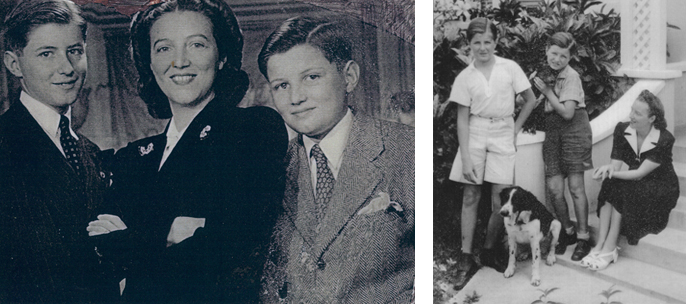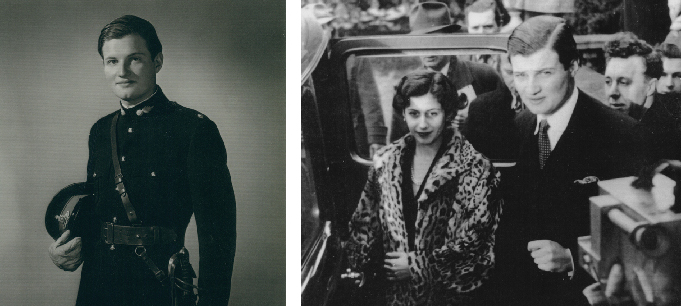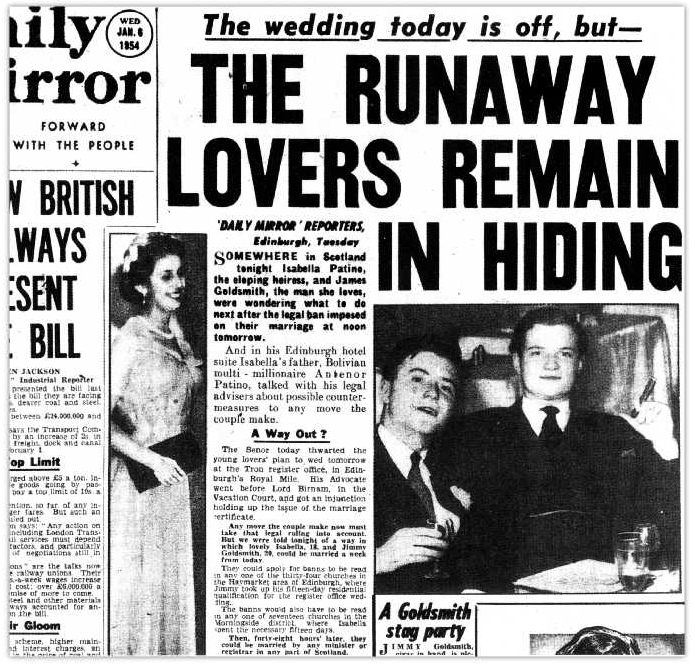Sir James regarded his maverick nature and upbringing as the driving force behind his success.
“My disequilibrium comes from the very fact that I’m a foreigner … I’m a Jew to the Catholics, a Catholic to the Jews, an Englishman to the French, and a Frenchman to the English. I’ve always been neither one thing nor the other – which is an unsettling thing to be.”
Born in February 1933 into a Jewish family in Paris, James Michael Goldsmith was the son of luxury hotel owner and former MP Major Frank Goldsmith and his Catholic French wife Marcelle Moullier, and younger brother of environmental campaigner Edward Goldsmith (Teddy). Sir James lived his early years in France, but attended boarding school in England. He was equally at home – and equally alien – in both countries.

Sir James was not the first of his family to be driven by such alienation: his father, Frank Goldsmith, emigrated from Frankfurt to England when he was sixteen. He strove to become the ideal British citizen, losing his German accent, changing his name from Goldschmidt, studying at Oxford University, spending ten years as a volunteer officer in his local regiment, and serving as a Member of Parliament.
However after the outbreak of the First World War in 1914, Frank’s brother-in-law Ernst von Marx wrote a telegram from Germany, asking ‘How can you consider fighting for anyone other than your fatherland?’ The telegram was seen by the local postmaster and word got out. Riots followed, and there were vocal demands that Frank Goldsmith be stripped of his commission in the Suffolk Hussars. Frank was shocked and devastated by the anger unleashed against him. He left England for a foreign posting and never forgot the way he had been treated. After the war, he settled in France, in a self-imposed exile, where he met with huge success running hotels.
“A man of my means should not remain a schoolboy, even at Eton”
Sir James attended Eton but dropped out aged sixteen – when he won £8000 on a horseracing accumulator bet. He went to live with his brother Teddy in Oxford, where he met John Aspinall who would become a lifelong friend, and gambled away his winnings. His father agreed to pay off his debts, on the condition Sir James joined the army.
He returned to Paris after leaving the army in April 1953. When anxious relatives asked him what he wanted to do with his life, he would reply: “I’m going to be a millionaire.”
That summer Sir James met Bolivian heiress Maria Isabel Patino, eighteen-year-old daughter of tin magnate Antenor Patino and the 3rd Duchess of Durcal of the Spanish royal family. In the face of stern opposition from Isabel’s father, they courted and fell in love.

“Nor is it our habit to marry Red Indians”
When Sir James proposed the marriage to Antenor Patino, Patino is alleged to have said, ‘We are not in the habit of marrying Jews’, to which Goldsmith is reported to have replied, ‘Well, we are not in the habit of marrying Red Indians’. With the heiress pregnant and the Patinos insisting the pair separate, the couple eloped in January 1954. The marriage was brief. Struck down by a cerebral haemorrhage in her seventh month of pregnancy, Maria Isabel Patino y Goldsmith died in May 1954; their child Isabel survived after being delivered by Caesarean section. Now with his child to provide for, Sir James began to explore the pharmaceutical business, and his career took off from there.

